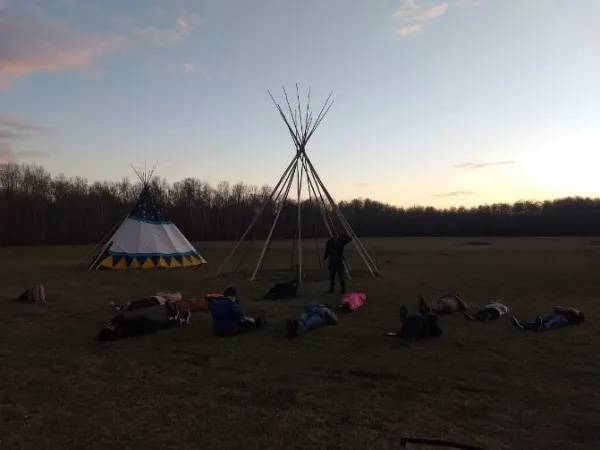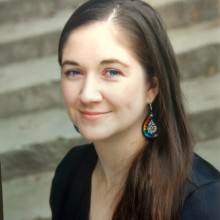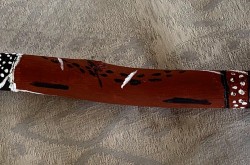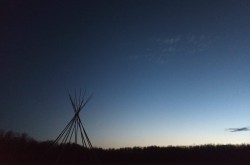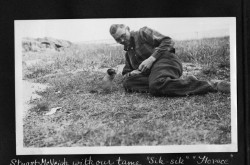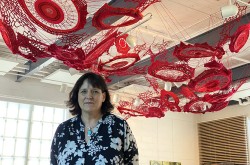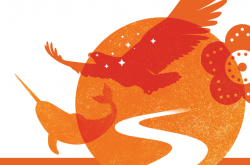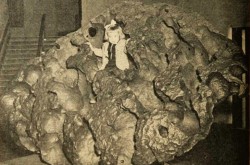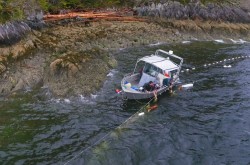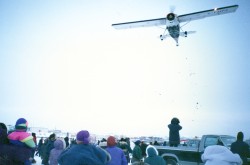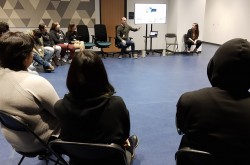Digging deeper: Regenerating Indigenous star knowledge
June marked National Indigenous History Month in Canada. In the spirit of honouring our nation’s Indigenous communities, the Ingenium Channel presents a three-part series about the Indigenous Star Knowledge Project — a collaborative effort between Ingenium and its partners.
In part one, Star stories: The making of the Indigenous Star Knowledge Project, guest writer Lindsey Kirby-McGregor shared the story of how the project was born. In part two, Under the same sky: Conversations from the Indigenous Star Knowledge, she summarizes the key conversations from a webinar hosted by the Indigenous Star Knowledge Project. Here, she shares ideas around regenerating Indigenous star knowledge.
One of the key discussion threads during the first webinar of the Indigenous Star Knowledge Project — held on Sept. 21, 2020 — centred around the protocols and processes for regenerating and protecting Indigenous star knowledge. Responding to listeners’ questions, the panel speakers described how we can “find” and preserve what is often assumed to have been lost to colonization.
Redeveloping protocols
According to Dr. Stuart Barlo — a renowned Indigenous research scholar from Southern Cross University in Australia — knowledge that colonization endeavored to erase is not lost, and cannot be lost, because it is not “contained” within people but is held by the land, the water, and the sky. According to Barlo and his esteemed colleague, Dr. Shawn Wilson, knowledge is alive. Knowledge reveals itself through protocol and the way you reveal yourself. In Barlo’s words, “Sit with the data, and take it for coffee.”
In many cases, we are redeveloping protocols and learning to make them more visible so more people can enter into sacred spaces intentionally, through accountable, honest relationships, rather than doing so accidentally. The two scholars indicate that given the way the sacred and the practical interact, in that they are never fully separate, people enter into the sacred space where knowledge exists all the time by accident. In practicing science, we are approaching knowledge deliberately. Ceremony and associated protocols are processes designed to intentionally enter into the sacred space in order to interact with knowledge, then integrating that learning into one’s life.
In order to engage in ceremony to revisit knowledge about the stars, otherwise known as research, we must know how to engage in ceremony. To this, Wilson proposes the following steps:
a) Define what we haven’t lost
b) Understand how we did those things and why
c) Re-do them and tweak based on our current context and knowledge, change as we go
d) Bring other people along with you
Stories and Indigenous star knowledge
Wilson’s final step for re-creating ceremonies needed to regenerate star knowledge involves sharing with others.
While ceremony and protocols are a means to entering into relationship with star knowledge/sky country, stories are a tool for sharing this knowledge.
~ Dr. Shawn Wilson
According to Wilson, these stories are not only about the stars but also about the space between the stars — what makes up constellations and the picture we have of the night sky. Star country and land country are inseparable, he explained; the stars are a reflection of what is going on here on Earth. Star stories ensure the accuracy of oral stories, as some stories are told in alignment with different times of year or day.
In addition, natural law or sacred law is also reflected in star stories — containing instructions on how you should behave. Stories can contain protocol, and they themselves have their own protocols; hearing a story does not mean you are a custodian of it and allowed to share it, and not all stories are meant to be heard by everyone. According to Nancy Maryboy, the ancestors put these stories in the sky because the sky appeared unchanging while other physical landmarks we tied stories to — like rivers, mountains, or forests — could change; so we can always look to the sky for guidance in our lives.
According to Wilson, because the stars have natural law stories in them they teach people about relationships — their roles and responsibilities within them, and how they are intended to behave. These stories teach us how to interact and how to fulfill the roles that we are supposed to be fulfilling as human beings, and to Wilson, that is what Indigenous astronomy is about.
Protocols for protecting Indigenous star knowledge
A listener asked how to ensure that Indigenous star knowledge and other Indigenous knowledge would be protected from inappropriate usage, as it is recovered and reclaimed. According to Barlo, knowledge has agency and protects itself. However, if protocols are followed correctly, we can protect the knowledge as well. This involves a number of factors:
• Protocols are about how we behave when entering a sacred space. Behavior outside and during ceremony and interactions with knowledge is important: we need to live a congruent lifestyle.
• If you gain knowledge you also become responsible for it. It’s important to view science and knowledge as something with which we enter into relationship with, and have responsibilities for.
• Making protocols visible ensures more people enter intentionally into a sacred space and learn to be a good guest. According to Barlo, there is a difference between being a dinner guest and saying, “This is where I choose to live.” It is important to understand the difference and its impact on the relationship and our behavior.
When considering how to regenerate and revitalize any traditional knowledge, these key elements are critical. It is important to remember that the knowledge exists, and the process is really about entering into relationship with it. This involves all the important factors in any relationship: respect, accountability, and reciprocity. Our behavior towards the knowledge will influence our interaction with it, just as our behavior towards other people influences our interactions with them.
To read about upcoming webinars, visit the Indigenous Star Knowledge Symposia: A series of local and international gatherings, on the land and online.



